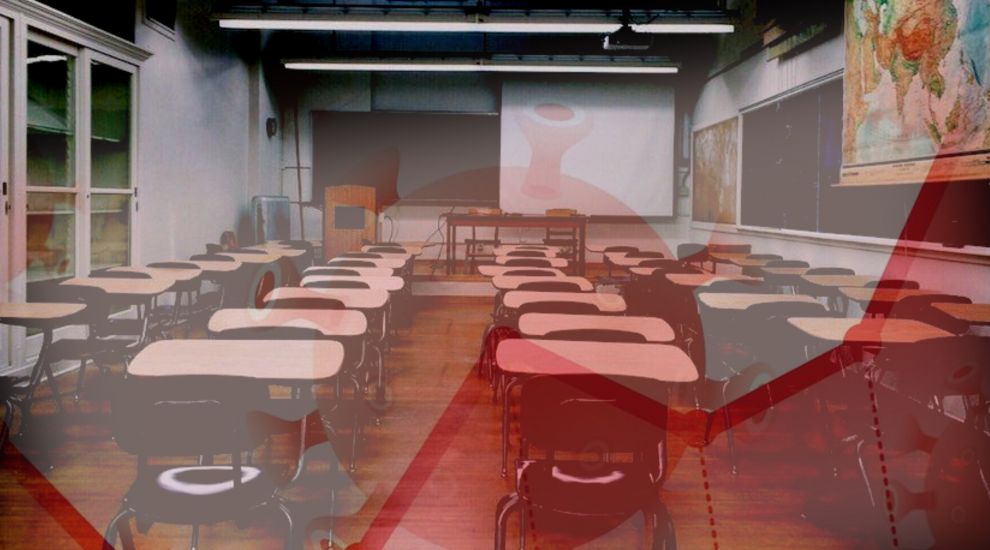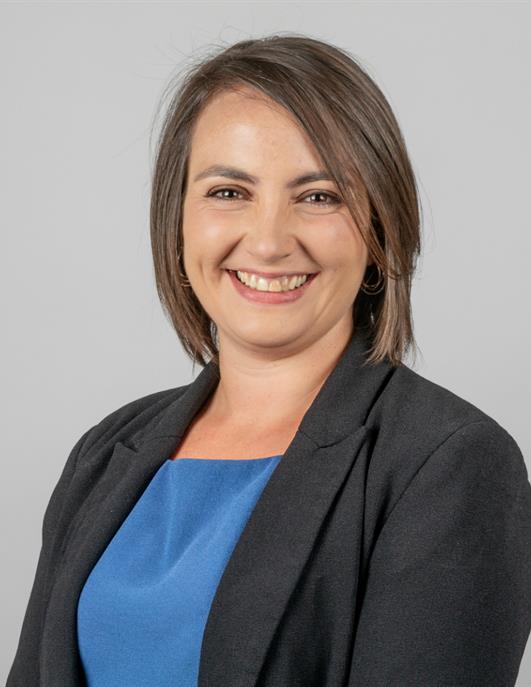


The States Assembly are sitting today to hold an emergency debate to decide if schools should shut their doors on Friday and teach the last week of term remotely.
Former teacher Deputy Rob Ward secured the necessary seven signatures from politicians to call for a debate.
The ultimate decision fell to the Bailiff and the Assembly’s own standards watchdog, the Privileges and Procedures Committee, who approved the sitting yesterday.
Deputy Ward said: “It‘s important to say that I’m calling for the facilities to close and not the schools, so teaching can continue virtually, as it did earlier this year.
”Perhaps next week’s teaching can specifically focus on wellbeing and recovery. This term has been an intense 11 weeks and it’s important that both teachers and students can use the holidays to recover. A lot of students will go into exams next term and it is vital they are ready: mentally, physically and academically.

Pictured: Deputy and former teacher Rob Ward is trying to arrange an emergency States sitting, although he hopes it won’t have to happen.
“I received about 50 emails from teachers overnight, all of them genuinely concerned at the harm that will be done if schools remain open till next Friday. It is really, really hard for everyone at the moment.”
Meanwhile, headteachers themselves have said that keeping schools open may not be sustainable. At least 14 nurseries, schools and colleges have confirmed cases, with many more struggling to cope with staff having to isolate as direct contacts.
With the Education Minister deciding this week that schools should have the flexibility to set their own policy, some have already decided to offer parents the choice of letting their children learn from home next week.

Pictured: The Education Minister has said that schools can be flexible.
Union leaders representing both headteachers and teachers said that the current situation - with at least 250 teachers and support staff having to isolate at home - was “extremely challenging” and may not be sustainable until next Friday, when the term is due to end.
While recognising that the school environment was the best one for learning wellbeing, that had to be balanced against the risk of a child having to isolate at home over Christmas, and the consequential impact of their mental health, they added.
Sam Cooper, President of the local branch of the National Association of Head Teachers, said: “The understandable concerns expressed by parents, school and teaching union colleagues and the wider public have been considered by the NAHT.
“We are also informed by the specific data from, and meetings with, our colleagues in health who keep us very informed of transference rates in schools amongst adults and youngsters.
“Our job is education and safeguarding children – many of whom are vulnerable. We also have an important duty of care to our staff. In schools, control measures and high degrees of vigilance are in place.
“A challenge for school leaders is the quantity of staff who are absent in some schools, not all, as a result of being contact traced. Of course, in the fight against covid being tracked is a good thing, but it presents school leaders with real challenges.
“Working with our colleagues from CYPES we are able to respond very quickly to closing classes, year groups or bubbles for both a positive case being identified, but also because a high number of teachers and support staff are absent through being a direct contact."

Pictured: D’Auvergne headteacher and union official Sam Cooper.
With this in mind, he warned that a move to mass virtual learning may be imminent.
“In this rapidly changing environment, the ability to respond dynamically may be eroded and the need to move to remote learning for all may be required at very short notice and parents and carers need to be prepared for this eventuality," Mr Cooper said.
“The current capacity for many schools is extremely difficult and may not be sustainable because of the demands of the pandemic and staff absences as a result of this.”
He added that, if schools did close early, they would maintain services for vulnerable children and the children of key workers, as they had during lockdown.
Brendan Carolan, spokesman for the National Education Union said: “We are all working together so get the Government to change its mind and close schools a week early.
“Schools have shown that they can work perfectly well remotely and it would remove the chaos and confusion for teachers, who don’t know which children are in or out, which year-groups are present and which colleagues they’re covering for.
“As an Island, we need to get the R number down, and to do that, we need to give the Contact Tracing Team a fighting chance to reduce their backlog.
“Let all work together to give them - as well as healthcare workers - as much of a break as we can.”
Comments
Comments on this story express the views of the commentator only, not Bailiwick Publishing. We are unable to guarantee the accuracy of any of those comments.